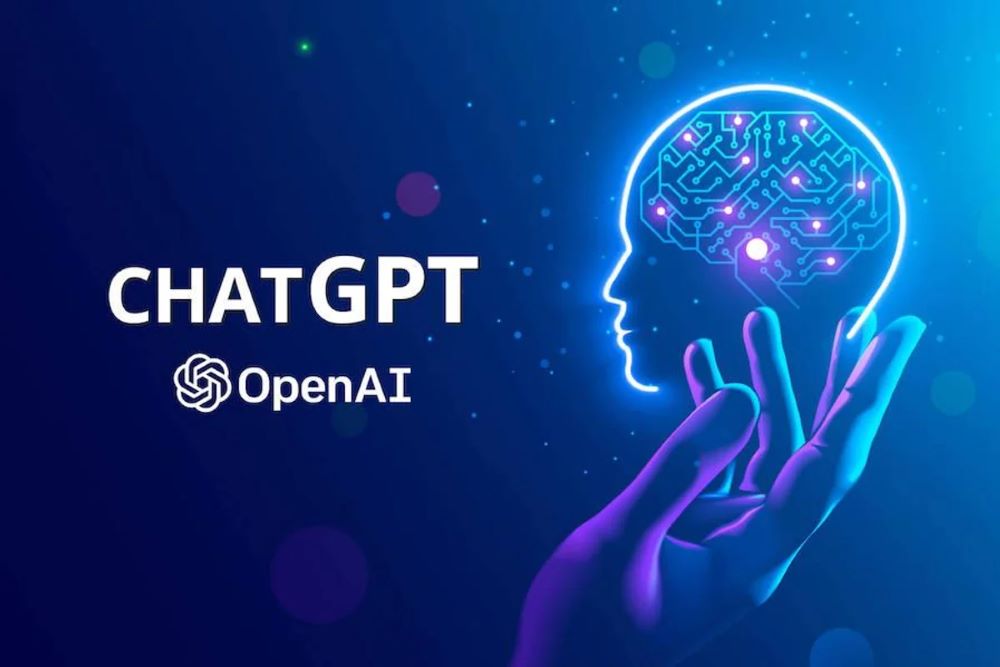ChatGPT went viral not too long ago, appearing on TikTok, Instagram, and YouTube. ChatGPT is an artificial intelligence (AI) robot created by OpenAI, a company founded by Sam Altman, and Elon Musk, and supported by Microsoft.
Unlike Google Search, which provides a list of websites when a keyword is applied, ChatGPT works like chatting with another person. You ask a question or give a command, and it responds quickly. If it doesn’t know the answer, it apologizes. If you say thank you, it offers to answer any further questions. Amazing, isn’t it?

In the past, we were amazed by the ease of using Google Assistant. Smartphone users could easily command Google Assistant to do something with just their voice. However, ChatGPT has truly captivated the world with its abilities.
While ChatGPT is not perfect and still makes mistakes, it has already been used by students in the US, France, and other countries to create written works. Universities have finally seen ChatGPT as a concern, with some universities in the US and France banning its use.
Amazon initially banned the use of ChatGPT for authors who sell their works on the marketplace. However, Amazon later began selling e-books entirely written by AI. Wow!
Due to ChatGPT, researchers and universities in the US are developing AI that can detect chatbot works, called DetectGPT. It seems that the AI war against AI is about to happen.
So, what impact will this have on the future of journalism? It’s certainly worrying. ChatGPT could potentially kill the creativity of journalists, writers, and bloggers. Even I have used ChatGPT to fill my blog content. Unfortunately, some of the ChatGPT texts I tested were detected as 100% original work by 1Text.com, a Russian-made site that I use to check for plagiarism.
After applying this, I thought to myself, “This is just the beginning. In the future, journalists or writers may not be needed at all. Everything will be replaced by AI or chatbots, especially as ChatGPT’s abilities continue to be developed and perfected to respond more naturally.”
Google is now launching Bard Google, an AI chatbot that will compete with ChatGPT. The parent company of Facebook, Meta, is also getting into AI technology. Even China, which has blocked ChatGPT, is developing a replacement chatbot in the country.
As these AI development companies compete, they will worsen the creativity of writers (journalists, freelance writers, and bloggers). The more they compete, the better their services become. The more real the threat of the destruction of original journalism becomes.
However, will journalists really no longer be needed? Hmmm… I am beginning to think otherwise. It seems that there is still room for journalists. AI cannot cover events or interview people, and it cannot make appointments for interviews. These are the limitations of AI.
This competition among AI developers will further worsen the creativity of writers (journalists, freelance writers, and bloggers). The more these AI development companies compete, the better their services become. And the more real the threat of the destruction of original journalism becomes.
The reasoning is simple: why would media companies pay writers when chatbots can produce better articles without spelling mistakes and with good grammar? Chatbots can also complete their tasks quickly.
So, will journalists be rendered unnecessary in the future? Hmm… I’m starting to think again. It seems that they won’t. There is still room for journalists. AI cannot cover events. AI cannot conduct interviews with people or make appointments for interviews. These are limitations of AI that human journalists can take advantage of.
However, journalists need to adapt to the times. They need to learn how to use AI to assist them in their work. For example, AI can help them quickly identify trends and analyze data. Journalists need to be able to collaborate with AI instead of seeing it as a threat.
In conclusion, ChatGPT is a breakthrough in AI technology that has the potential to replace human writers. However, there is still a long way to go before chatbots can completely replace human writers. Journalists and writers need to adapt and collaborate with AI to keep up with the times. The future of journalism is not just about human vs AI, but rather how human journalists can leverage AI to produce more engaging and informative content.









1 comment